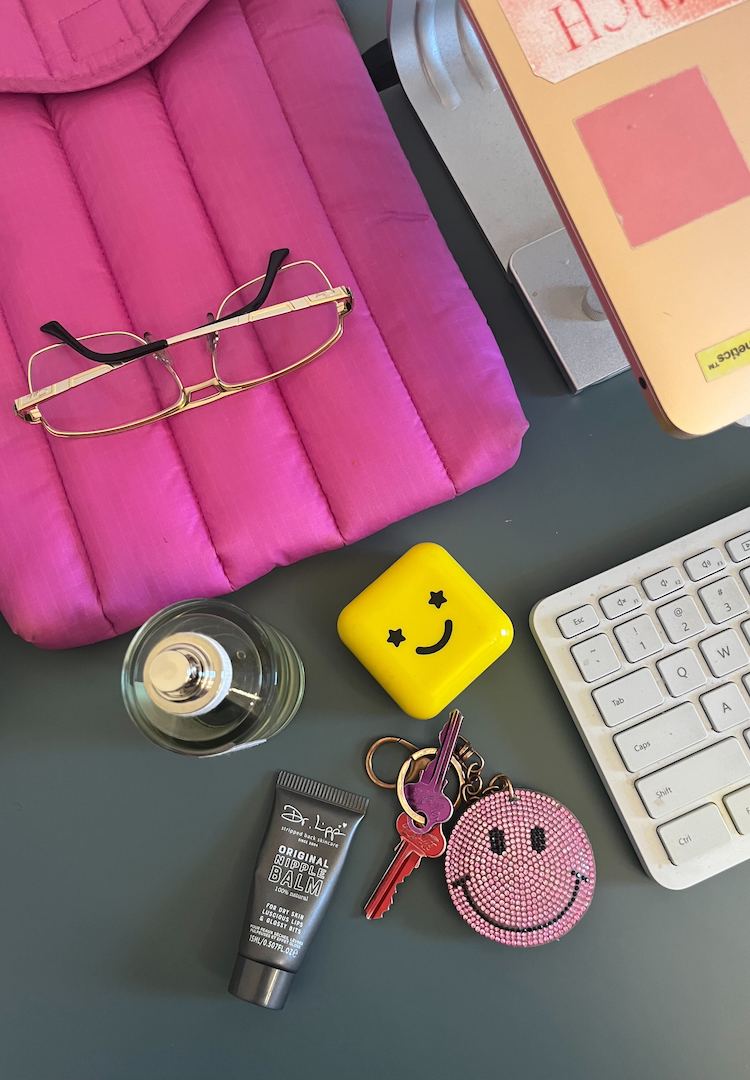Is it okay to block your boss on Instagram?
PHOTOGRAPHY BY KAI LAO
WORDS BY ANNA MACKENZIE
A lesson on setting boundaries between work and play.
A lesson on setting boundaries between work and play.
Before I went out on my own and started a business, I loved being an office social butterfly. Each morning I’d bounce in fresh-faced and bright-eyed ready to take on the first and most important task of the day – gas-bagging with the team. We’d chat about everything, what we watched on Netflix the night before, whether our boyfriends did or didn’t do the dishes after dinner and what meetings we had on that day. We’d sink wines after work, hang out on weekends and even make it to each other’s big life milestones.
I’m lucky I’ve loved all of my jobs so far, in part because of the deep friendships formed everywhere I went. But having such great work pals meant boundaries between the professional and personal sometimes became blurred. In one role, things got a little tricky when a new boss entered the fold.
Interested to hear how others navigate the world? Head to our Life section.
At first, we were excited to welcome them as they were great at their job. Analytical and logical, they had a brilliant strategic mind and I was impressed with how they navigated complex decisions and built bulletproof plans. But over time I started to notice what they possessed in hard skills, they lacked in soft ones. They struggled to connect meaningfully on any level other than intellectual. Whenever they tried to instigate non-work related chat, it came off as forced.
In hindsight, they were probably struggling to find their place in a super-tight team dynamic, but their attempts to connect came off as creepy and weird. I wasn’t totally surprised when they later followed me on Instagram, rationalising it by saying I travelled lots for work and often posted the interesting things I came across. It still made me feel slightly uneasy, but because they didn’t engage much on my socials, I pretty quickly forgot about it.
Fast forward a year and my work BFFs and I were at a wild house party. We rocked up in outlandish outfits and spent the night dancing until the crack of dawn. The next morning, I posted some of our party pics to Instagram. This was the era of casually throwing a photo onto the feed without curation or care in the world (the glory days!). I didn’t think twice about it.
The next Monday, we rolled into work and were greeted by our boss with a snide “You must’ve had a big weekend” comment and a pointed reference to one of my posts in particular. Their passive-aggressive nature made all of us feel super uncomfortable and after a desk-side discussion that afternoon, we collectively decided to block them. No biggie, we thought. Block and move on.
Things didn’t go down as expected, and the fallout was nothing short of nuclear. They asked us, point blank, why we’d blocked them. They were upset and pissed off. We were lost for words. It’s not just me who’s had to deal with an awkward moment like this at work. A recent poll by Fortune found 64 per cent of respondents have experienced a toxic work environment, and 44 per cent blamed leadership or their boss.
My own detective work confirms this stat. A callout on my Instagram generated responses like, “My boss wanted to go out for drinks and would get annoyed if I didn’t comply”, “My boss lived in the same building as me, once he forgot his keys and invited himself into our apartment at 2am for drinks” and “My boss would stop talking to me if she saw I’d been out with work friends on Instagram”.
And the clincher? “My boss hacked into my email address and penned an email posing as me, to my client”. Oof. It seems finding yourself in a position like this is more common than you might think.
What should we do when a boss oversteps?
It can be difficult to know how to respond but my intuition says impulsively blocking your boss and getting accosted in the office may not be the best approach, so to help answer this question I reached out to organisational psychologist Dr Amantha Imber for some professional advice.
She shares setting boundaries is critical to our wellbeing because it establishes how we want to be treated, and what we will and won’t put up with. That being said, it’s common for people to struggle to lay ground rules in the workplace, especially if you’re a people pleaser.
“A lot of people worry about the impact of saying no – which is what setting a boundary is – [on] their career, what their boss thinks of them or even their relationships with teammates,” Dr Amanda says. While setting a boundary might cause your heart rate to skyrocket, Dr Amantha says the approach to doing so is simple.
State a clear no (as opposed to a vague one). Many of us who struggle to set boundaries try and soften the blow by dancing around the issue. Instead, state a clear and decisive no. Don’t apologise. Don’t over-explain.
According to Dr Amantha, it’s easy for behaviour to be misinterpreted. If you clearly explain the impact of your boss overstepping and the reason you’re taking the action you’re taking, they’re more likely to open up, listen and respect you moving forward.
Doing a retroactive on my boss blocking, they probably thought we hated him when in fact we simply wanted some privacy. With the benefit of years of hindsight, I should’ve addressed the issue upfront and diffused the situation before it had a chance to erupt.
So, is it okay to block your boss on Instagram? If that’s what it takes to implement your boundary then yes, blocking your boss is well within your rights. But instead of acting impulsively, proactively communicate your social media boundary and why you’d prefer to keep your digital distance so it doesn’t come as a giant surprise. And, if you’re a people pleaser like me and feel the need to soften the blow, I suggest you connect on LinkedIn, a place you’ll never post pics of you dancing the night away.
Need some help navigating boundary-setting at work? Read this.










